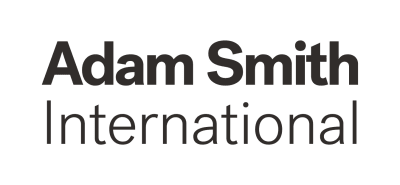
Quality and Impact Coordinator
- Remote
- Damascus, Dimashq, Syrian Arab Republic
- Project Positions
Job description
Location(s): Damascus, Syria; with regular in-country travel, as feasible, for field support, coordination meetings, workshops and training.
Reports to: Deputy Executive Director (DED) - Impact and Quality; with support from the MREL Manager.
Manages: Quality and Impact Officers distributed in the following governorates:
Aleppo and Idleb Governorates – covering these governorates, and Lattakia as requested.
Homs and Hama – covering these governorates and Tartus as requested.
Deir Al Zor city as requested
As-Sweida– covering Sweida and supporting Daraa, and Rural Damascus as requested.
Damascus and Rural Damascus – covering these governorates, and Quneitra and Daraa as required.
Duration: October 2025 – September 2026
About ASI and AFS
Adam Smith International (ASI) is a global advisory company that works locally to transform lives by making economies stronger, societies more stable, and governments more effective. Our clients are governments, international organisations, companies, and foundations. They come to us to develop strategies and to design, deliver and evaluate programmes that address the big challenges facing the world. Our core team of staff and technical experts, in multiple offices around the world, ensures the quality of delivery and high ethical standards that we and our clients require.
ASI is owned and operated by its employees. We are committed to corporate integrity and a triple bottom line of social, environmental and financial performance. This commitment was formally recognised when we became a certified B Corp. The certification indicates we balance profit and purpose through the highest standards of transparency and accountability as well as social and environmental performance.
The Aid Fund for Syria (AFS), formerly the Aid Fund for Northern Syria (AFNS), is a multi-donor pooled fund established in October 2022 to meet critical needs in Syria. Initially focused on addressing acute humanitarian needs in northern Syria through the cross-border response, AFS has since evolved into a flexible funding mechanism supporting efforts towards Humanitarian-Development-Peace (HDP) Nexus. Following the fall of the Assad regime in December 2024, AFS expanded its strategic focus to areas previously not accessible to AFS partners, adapting to Syria’s evolving political, economic, and institutional landscape. The Fund continues to work with aid actors, including communities, civil society organisations, the cluster coordination mechanism, the United Nations, and donors to identify where needs and opportunities are greatest and where it can add the most value.
Objectives
The Quality and Impact Coordinator leads the field assurance function for AFS. Provides primary support to MEL (overseen by the MREL unit) and coordinates shared tasks with other units Partnership and Delivery, Risk and Safeguarding, Finance, etc).. Issues the monthly plan for Quality and Impact Officers, consolidating requests from the online tool which is the only tool that through AFS team members will make requests to the Quality and Impact Coordinator and Officers, assigning tasks and amending the plan as needs change. The Quality and Impact Coordinator additionally track delivery against a performance indicator focused on quality and efficiency and produces concise outputs in Arabic and English.
Location: Damascus, Syria; with regular in-country travel, as feasible, for field support, coordination meetings, workshops and training.
The Quality and Impact Coordinator may be tasked to support other locations as needed, including cross-cover (e.g., an officer based in Aleppo supporting other governorates). Regular travel to project locations, where feasible. This distribution of the Impact and Quality Officers will be reviewed and adjusted based on demand, Allocation Strategies and project amendments. The Impact and Quality Coordinator is expected, as needed, to fulfil the tasks typically conducted by the Quality and Impact Officers.
Key Responsibilities
Monitoring, Evaluation and Learning (MEL) specific responsibilities (40%)
Plans and issues the monthly work plan for officers based on consolidated requests submitted via the online tool.
Approves additional visits as required in coordination with the DED – Impact and Quality, and ensures balanced workloads, timely delivery of the monthly plan, and prompt follow-up on any delays.
Ensures mobile data capture (MDC) is the primary collection method and that approved forms, devices and versions are used.
Reviews field monitoring submissions for accuracy and completeness. Returns items for correction and confirms updates to the field monitoring tracker.
Checks observations and verified outputs against approved proposals and relevant humanitarian and technical standards.
Plans and coordinates assessments and community engagement activities using approved tools and sampling. Confirms informed consent, safeguarding and secure data handling.
Plans accompaniment of Third Party Monitoring when requested. Briefs officers, facilitates access and captures AFS observations.
Oversees and coordinates support to the Data Quality Assessment process when requested by the MREL Manager and the DED – Quality and Impact.
Coaches Impact and Quality officers on MDC use, interviews, household surveys, FGDs, key informant interviews and concise notetaking.
Shared tasks (cross-units) (60%)
Coordinates the Impact and Quality officers’ support to due diligence and capacity assessment verifications with PDU, ensuring approved checklists are used, evidence is captured via MDC, requests are assigned promptly, and submissions are complete and properly filed.
Coordinates the Impact and Quality officers’ support to programme office checks and financial checks at partner offices when requested, ensuring these remain distinct from on-site programme checks and that outputs are accurate and complete.
Coordinates officers’ support to external audits with Finance and PDU, arranging access to sites, staff and documents, confirming factual records are provided, and tracking audit action points.
Oversees officers’ identification and mapping of stakeholders, service providers and active projects across areas of operation; follows up to ensure maps are current and complete. Coordinates with national or local authorities only as requested by the DED – Quality and Impact.
Consolidates field inputs to project risk registers, ensures timely escalation of material risks identified during checks, and tracks agreed mitigation follow-up to closure.
Works with the AAPCE Focal Point on AFS-led initiatives (e.g., pre-allocation consultation sessions) and ensures officers check the visibility of partner information-sharing and feedback channels during visits and route community feedback for action.
Works with the GESI Focal Point to support inclusive participation and required disaggregation in field data and engagement activities, and reviews officer submissions for compliance.
Ensures same-day reporting of safeguarding concerns by officers to the Safeguarding Adviser via approved channels, maintains confidentiality, confirms referral steps are followed, and personally reports any concerns observed.
Reporting, Management, and Accountability
The coordinator will report to the AFS Deputy Executive Director (DED) - Impact and Quality; with support from the MREL Manager. They will be reported to by the Quality and Impact Officers distributed in the following governorates:
Aleppo and Idleb Governorates – covering these governorates, and Lattakia as requested.
Homs and Hama – covering these governorates and Tartus as requested.
Deir Al Zor city as requested
As-Sweida– covering Sweida and supporting Daraa, and Rural Damascus as requested.
Damascus and Rural Damascus – covering these governorates, and Quneitra and Daraa as required.
Availability
The officer must be available to serve on the programme between October 2025 and September 2026.
Job requirements
Personal Qualifications and Experience
Proven people leadership; line managing dispersed field teams, setting clear priorities and plans, coaching and mentoring staff, giving timely feedback and managing performance.
At least 7 years of experience in grant management, monitoring, delivery, or a similar role, preferably with international organisations.
Arabic fluency and working English sufficient to read guidance, draft reports and attend meetings where English is spoke.
Ability to provide meaningful inputs for analyses (e.g., visuals and dashboards – see examples here) when requested.
Proven humanitarian field experience or knowledge in the context of Syria and familiarity with Sphere and the Core Humanitarian Standard.
Proficient with MDC tools and basic data literacy, including accurate form completion. Ability to build MDC forms (e.g., Kobo, Mobenzi, Dimagi CommCare, etc.) is an additional advantage.
Skilled in interviews, household surveys, FGDs and key informant interviews, with strong safeguarding awareness.
Professional conduct with partners and communities, maintaining appropriate boundaries.
Excellent negotiation, organisational, and problem-solving skills.
Very good security awareness, including adherence to movement procedures, situational awareness and timely incident reporting, and close coordination with operations on access constraints, routes and permissions.
Some experience in procurement is preferable.
We warmly welcome applications from female candidates and from people of diverse backgrounds. If you meet most of the requirements and are keen to learn, please apply.
Deadline for applications is 10th September 2025.
or
All done!
Your application has been successfully submitted!
